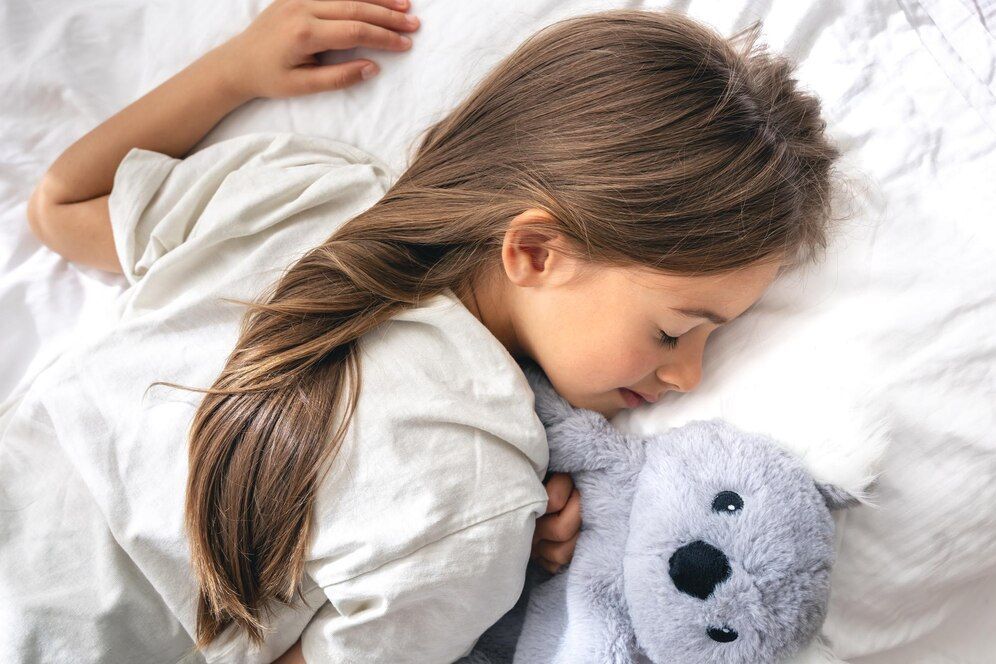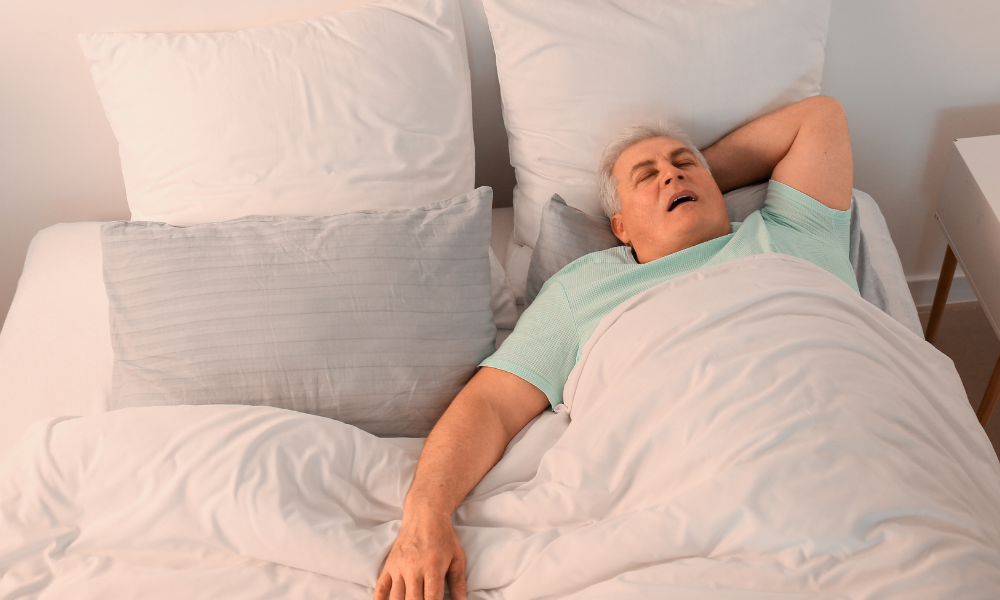
Sleep apnea, a disorder characterized by repeated pauses in breathing during sleep, is commonly associated with adults. However, sleep apnea can also affect children, disrupting their sleep and potentially leading to a range of health and developmental issues. It is crucial for parents, caregivers, and educators to be aware of the signs and symptoms of sleep apnea in children, as well as understand the importance of early intervention and appropriate treatment options.
In this blog post, we will discuss the risk factors, signs, and symptoms of pediatric sleep apnea, explore the potential consequences of untreated sleep apnea in children, and share effective treatment options that can be provided by Columbia Center for Sleep Apnea and TMJ. Our goal is to empower parents and caregivers to recognize sleep apnea in children and seek appropriate intervention, ensuring a healthier future for their children.
Although the prevalence of sleep apnea in children is lower compared to adults, it can still have a significant impact on a child's cognitive function, behavioral patterns, academic performance, and overall well-being. Early intervention is key to mitigating potential long-term effects and ensuring a healthy and balanced childhood development.
In the upcoming sections, we will discuss risk factors and warning signs for sleep apnea in children, delve into the potential consequences of untreated pediatric sleep apnea, and provide an overview of treatment options available at Columbia Center for Sleep Apnea and TMJ. By shedding light on this critical topic, we hope to provide valuable resources and guidance for parents as they navigate the complexities of their child's sleep health.
1. Risk Factors and Warning Signs of Pediatric Sleep Apnea
Sleep apnea in children can occur for various reasons, such as enlarged tonsils or adenoids, obesity, or a family history of sleep apnea. Parents and caregivers should be aware of the following warning signs that may indicate sleep apnea in children:
- Loud or persistent snoring: While occasional mild snoring may not be a cause for concern, loud or frequent snoring could be a sign of sleep apnea.
- Pauses in breathing during sleep: Listening to your child's breathing while asleep can help identify any instances of interrupted breathing, which is a key symptom of sleep apnea.
- Restless sleep or frequent awakenings: Children with sleep apnea may experience interrupted sleep due to difficulty breathing, leading to restless sleep or frequent awakenings.
- Mouth breathing or gasping: If your child frequently breathes through their mouth or gasps for air during sleep, it could be an indication of sleep apnea.
- Daytime fatigue, irritability, or behavioral issues: Sleep apnea disrupts sleep quality, which can result in daytime fatigue, irritability, or problems with attention and behavior.
If you notice any of these warning signs in your child, it is essential to consult with Dr. Bloxham at Columbia Center for Sleep Apnea and TMJ to determine whether sleep apnea could be the underlying cause.
2. Potential Consequences of Untreated Pediatric Sleep Apnea
Left untreated, pediatric sleep apnea can lead to a range of negative consequences on a child's health and development, including:
- Cognitive difficulties: Disrupted sleep can impact a child's cognitive function, leading to issues with memory, attention, and problem-solving abilities.
- Behavioral problems: Sleep deprivation from sleep apnea can contribute to irritability, mood swings, and even hyperactivity in some children, impacting their social and academic lives.
- Learning difficulties: Fatigue and cognitive difficulties resulting from sleep apnea can hinder a child's ability to learn and perform well in school.
- Growth and development issues: Sleep apnea can lead to insufficient growth hormone production and, consequently, slowed growth and development in children.
- Cardiovascular risks: Chronic sleep apnea can increase the risk of high blood pressure, heart disease, and other cardiovascular issues in children.
Recognizing these potential consequences underscores the importance of early intervention and appropriate treatment options for pediatric sleep apnea.
3. Treatment Options for Pediatric Sleep Apnea at Columbia Center for Sleep Apnea and TMJ
At Columbia Center for Sleep Apnea and TMJ, we provide specialized treatment options for children experiencing sleep apnea. Our primary focus is to ensure a comprehensive and personalized treatment approach, which includes:
- Oral appliance therapy: Custom-fit oral appliances designed specifically for children can help maintain an open airway and ensure a more restful night's sleep. Depending on the child's specific needs, this may involve devices such as mandibular advancement devices or tongue-retaining appliances.
- Lifestyle modifications: We provide guidance on making lifestyle adjustments that can support sleep apnea treatment, including maintaining a healthy weight, practicing good sleep hygiene, and creating a sleep-friendly environment.
- Monitoring and follow-up care: Dr. Bloxham will regularly monitor your child's progress and make any necessary adjustments to the oral appliance as they grow and develop, ensuring ongoing effectiveness and comfort.
4. Importance of Early Intervention and Parental Involvement
As a parent, detecting sleep apnea in your child early and seeking prompt intervention can have a tremendous impact on their overall health and well-being. By taking an active role in addressing your child's sleep apnea, you can help:
- Prevent long-term health complications: Timely intervention can minimize the risk of cardiovascular issues, cognitive difficulties, and growth and development problems associated with untreated sleep apnea.
- Promote healthier sleep habits: Establishing healthy sleep routines and practicing good sleep hygiene can support your child's treatment and help them develop lifelong habits that contribute to better sleep and overall well-being.
- Improve academic and social outcomes: Addressing sleep apnea early can help improve your child's cognitive function and emotional regulation, resulting in better academic and social performance.
Conclusion
Recognizing and addressing sleep apnea in children is a crucial aspect of ensuring their overall health, well-being, and development. By understanding the signs, symptoms, and potential consequences of pediatric sleep apnea, parents and caregivers become empowered to seek early intervention and create a strong foundation for a brighter and healthier future. At Columbia Center for Sleep Apnea and TMJ, we are committed to helping children and their families navigate the complex world of sleep health—contact us today to learn more about our
sleep apnea solutions in Richland and support services.











